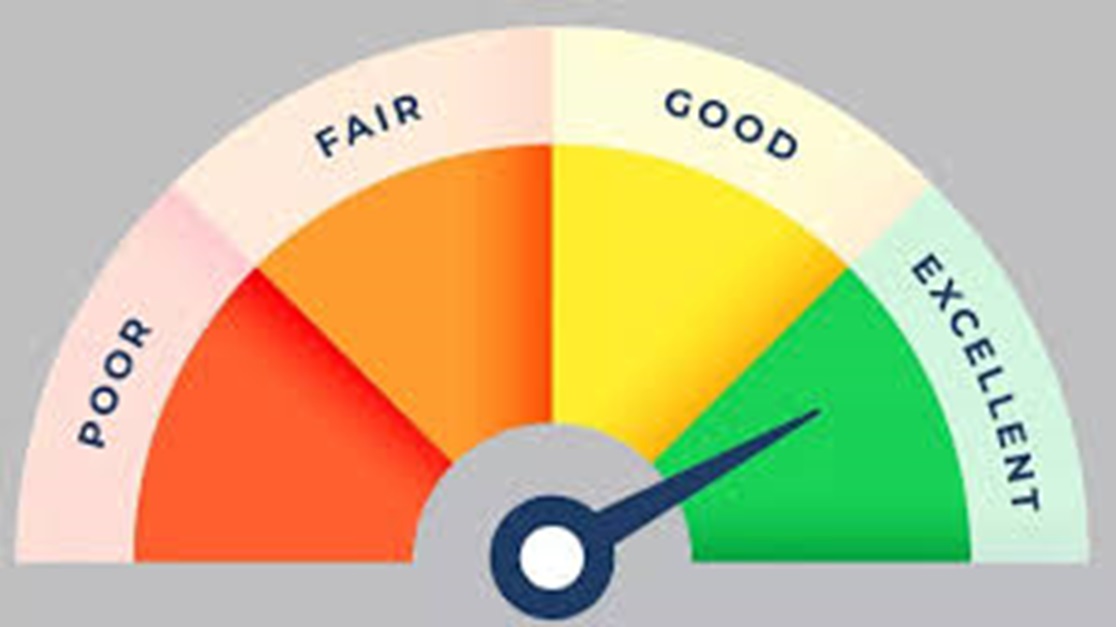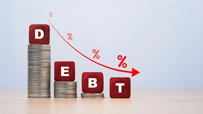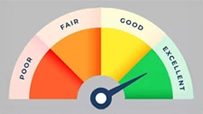Loan Application Rejected? Improve Your CIBIL Score Now
September 03, 2025

Rohit and Karan, both in their early 30s, were excited about buying their first homes. They had stable jobs and were ready to apply for a home loan. Rohit confidently submitted his application, only to face rejection due to a low CIBIL score. Meanwhile, Karan got his loan approved at a lower interest rate.
What went wrong for Rohit? And how did Karan get a better deal? The answer lies in their CIBIL scores—a three-digit number that determines your creditworthiness. If you’re like Rohit, wondering how to improve your CIBIL score for better loan approvals, this guide is for you.
What is a CIBIL Score and Why Does It Matter?
Your CIBIL score (Credit Information Bureau India Limited score) is a number ranging from 300 to 900, indicating your credit health. A higher score means better loan approval chances, while a lower score may lead to rejection or higher interest rates.
CIBIL Score Range and Loan Impact
- 750-900: Excellent - Quick loan approvals with low interest rates.
- 650-749: Good - Loan approvals with moderate interest rates.
- 550-649: Fair - Loan approvals possible, but with higher interest.
- Below 550: Poor - High rejection chances and very high-interest rates.
Hard Inquiry vs. Soft Inquiry: How They Affect Your CIBIL Score
When you apply for a loan or check your credit score, lenders and credit bureaus conduct inquiries. These inquiries can be of two types:
- Hard Inquiry: This occurs when a lender (bank, NBFC) checks your credit report after you apply for a loan or credit card. Multiple hard inquiries within a short period can lower your CIBIL score, as they indicate higher credit dependency.
- Soft Inquiry: This happens when you check your own CIBIL score or when a company performs a background credit check. Soft inquiries do not affect your credit score.
Tip: Avoid multiple hard inquiries by applying for credit only when necessary and using lender pre-approval checks before applying for loans.
How to Improve Your CIBIL Score: A Step-by-Step Guide
1. Pay Your Bills on Time – The Golden Rule
Rohit often delayed his credit card payments, thinking a few days wouldn’t matter. But late payments get reported to credit bureaus, lowering his score. Karan, on the other hand, set up auto-debits to ensure he never missed a due date.
Tip: Pay at least the minimum due amount on credit cards before the due date.
2. Maintain a Low Credit Utilization Ratio
Credit utilization is the percentage of your credit limit you use. Rohit maxed out his ₹2 lakh credit card limit frequently, while Karan ensured he never spent more than 30% of his limit.
Tip: Keep credit utilization below 30% to maintain a healthy score.
3. Avoid Multiple Loan Applications
Rohit applied for multiple personal loans in a short period, triggering hard inquiries that signalled financial distress. Lenders viewed him as risky, further lowering his score. Karan researched and applied for one well-suited loan instead.
Tip: Space out loan applications and check eligibility before applying.
4. Check Your Credit Report Regularly
Errors in credit reports are common. Rohit never checked his report, but Karan found a wrong overdue loan entry and got it corrected, boosting his score.
Tip: Obtain a free credit report from CIBIL once a year and dispute errors.
5. Maintain a Good Credit Mix
Having a mix of secured loans (home/car loan) and unsecured loans (personal loan, credit card) positively impacts your score. Rohit only had unsecured credit, while Karan had both, improving his creditworthiness.
Tip: If possible, balance secured and unsecured credit in your portfolio.
6. Don’t Close Old Credit Accounts
Rohit closed his oldest credit card, thinking it would help his score. Instead, it reduced his credit history length. Karan wisely kept his oldest credit account active, maintaining a long credit history.
Tip: Keep your oldest credit account open unless absolutely necessary.
7. Settle Outstanding Dues Instead of Defaulting
Rohit ignored an overdue loan, leading to a loan default in his credit history. Karan negotiated a structured repayment plan with his bank to avoid default.
Tip: If struggling with repayments, talk to your lender about restructuring.
Can I Get a Loan Without a High CIBIL Score?
You can get loans with low CIBIL score, but the approval process would be more stringent. In fact, you might be charged higher interest rates. That’s because banks would identify you as a high-risk customer who has more chances of defaulting a loan. You can read more about it here.
Final Thoughts
By following simple but disciplined financial habits, Karan maintained a CIBIL score of 780+, ensuring easy loan approvals at low interest rates. Rohit, after learning from his mistakes, took corrective measures and improved his score over time.
If you want hassle-free loan approvals, focus on timely payments, low credit usage, and responsible borrowing.
Kick-start your financial journey with Ujjivan. Save more with our high-interest Savings Account and Deposit products. Need cash for your business or personal needs? Apply for MSME Loans or Micro Loans with us – we offer competitive rates and quick disbursal. We also offer vehicle loans and home loans tailored for your unique requirements. Experience a smooth banking journey with Ujjivan SFB!
Disclaimer:
The contents herein are only for informational purposes and generic in nature. The content does not amount to an offer, invitation or solicitation of any kind to buy or sell, and are not intended to create any legal rights or obligations. This information is subject to updation, completion, amendment and verification without notice. The contents herein are also subject to other product-specific terms and conditions, as well as any applicable third-party terms and conditions, for which Ujjivan Small Finance Bank assumes no responsibility or liability.
Nothing contained herein is intended to constitute financial, investment, legal, tax, or any other professional advice or opinion. Please obtain professional advice before making investment or any other decisions. Any investment decisions that may be made by the you shall be at your own sole discretion, independent analysis and evaluation of the risks involved. The use of any information set out in this document is entirely at the user’s own risk. Ujjivan Small Finance Bank Limited makes no representation or warranty, express or implied, as to the accuracy and completeness for any information herein. The Bank disclaims any and all liability for any loss or damage (direct, indirect, consequential, or otherwise) incurred by you due to use of or due to investment, product application decisions made by you on the basis of the contents herein. While the information is prepared in good faith from sources deemed reliable (including public sources), the Bank disclaims any liability with respect to accuracy of information or any error or omission or any loss or damage incurred by anyone in reliance on the contents herein, in any manner whatsoever.
To know more about Ujjivan Small Finance Bank Products Visit:"https://www.ujjivansfb.in"
All intellectual property rights, including copyrights, trademarks, and other proprietary rights, pertaining to the content and materials displayed herein, belong
to Ujjivan Small Finance Bank Limited or its licensors. Unauthorised use or misuse of any intellectual property, or other content displayed herein is strictly prohibited and the same is not intended for distribution to, or use by, any person in any jurisdiction where such distribution or use would (by reason of that person’s nationality, residence or otherwise) be contrary to law or registration or would subject Ujjivan Small Finance Bank Limited or its affiliates to any licensing or registration requirements.
FAQs
1. How often should I check my CIBIL score?
You should check your CIBIL score at least once every 3-6 months to ensure accuracy and track improvement.
2. Will checking my own CIBIL score reduce it?
No, checking your own score (a soft inquiry) does not impact your CIBIL score. Only lender-initiated checks (hard inquiries) affect it.
3. How long does it take to improve a CIBIL score?
Improving your score can take 3 to 12 months, depending on your financial discipline and past records.
4. Can I get a loan with a low CIBIL score?
Yes, but it will come with higher interest rates and stricter terms. Consider improving your score first.
5. Does closing a credit card improve my CIBIL score?
No, closing an old credit card can shorten your credit history and lower your score.
6. What happens if I default on a loan?
A default can stay on your CIBIL report for up to 7 years, severely impacting future loan approvals.
7. How does my salary impact my CIBIL score?
Your salary does not affect your score directly, but higher income can help you manage credit better.
8. Can I improve my CIBIL score if I have no credit history?
Yes! Start with a secured credit card or a small consumer durable loan to build credit history.
9. Does increasing my credit limit improve my score?
Yes, if you don’t use the extra limit excessively, it can lower your credit utilization ratio and improve your score.
10. Can settling a loan affect my score?
Yes, a loan settlement (paying less than the full amount) is reported negatively. It’s better to pay in full if possible.
Latest Blogs

APK Fraud: How One Wrong Download Could Empty Your Bank Account
May 13, 2025
Picture this. You’re sipping your evening tea when your phone rings.

Gold Loan LTV Ratio Explained (75% to 85%): What It Means for Borrowers
March 20, 2025
In June 2025, the Reserve Bank of India (RBI) introduced a significant relaxation for gold loan borrowers: the maximum Loan-to-Value (LTV) ratio for loans below ₹2.5 lakh was raised to 85%, up from the long-standing cap of 75%. Loans between ₹2.5 lakh and ₹5 lakh can now go up to 80%, while loans above ₹5 lakh continue under the 75% ceiling.

Good Debt vs Bad Debt: Learn the Difference
August 13, 2025
Every month, millions of Indians wait for the familiar debit alert, an EMI deducted from their account.

Got a Tax Refund? 5 Smart Ways to Put Your 2025 Refund to Work
August 13, 2025
For many taxpayers, there’s a unique sense of relief when a tax refund arrives.

Credit Score Not Improving? 5 Mistakes You Might Be Making
August 13, 2025
For most of us, a credit score feels like a silent judge sitting in the background of our financial lives.


